Erin Oprea Shows Off Tiny Waist and Reveals 9 Signs You Are Protein Deficient
Erin Oprea is showing off her tiny waist – and schooling her followers about the importance of protein. In a new social media post, trainer to country stars Carrie Underwood and Maren Morris, discusses how protein is so crucial to weight loss. "LADIES, sooooo many of you are lacking PROTEIN!!! I hear it daily from you guys. A lot of women are getting 30 to 50 grams per day, that's TERRIBLE!!! It's time today to start focusing and you'll see/feel a world of difference in your body!!!" she wrote in the caption, revealing 9 signs that you are protein deficient.
Hungry Quickly After Eating
The first sign you aren't getting enough protein is that you get hungry shortly after eating. "For most individuals who are trying to lean out, we want to make sure that your protein intake is high, because that will help with hunger and fullness," Chris McMahon, a nutrition and fitness coach, explains to The Body Network.
Losing Muscles
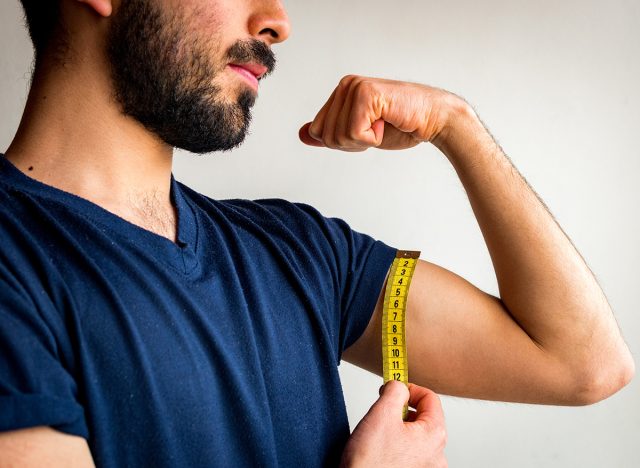
If you notice your muscles are dwindling away, it might be because you aren't getting enough protein, according to Erin. McMahon explains that protein is a fundamental building block for muscles and helps you preserve them. "And if you are lifting weights and you are training, it'll help you build muscle," he says.
Related: 12 Best Foods For Men to Build Muscle
Thinning Hair
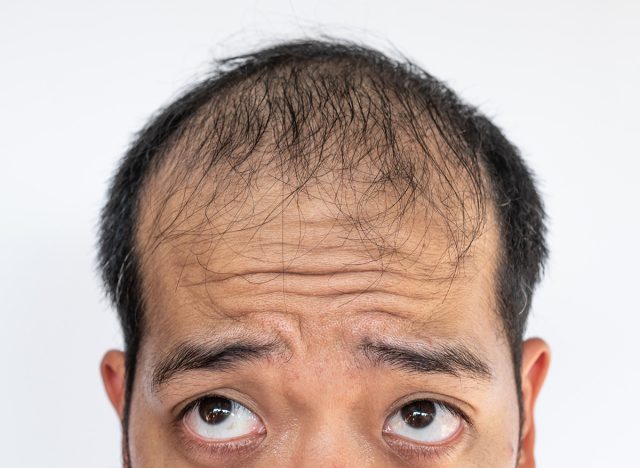
According to Erin, thinning hair is another sign you aren't getting enough protein.
Always Sore
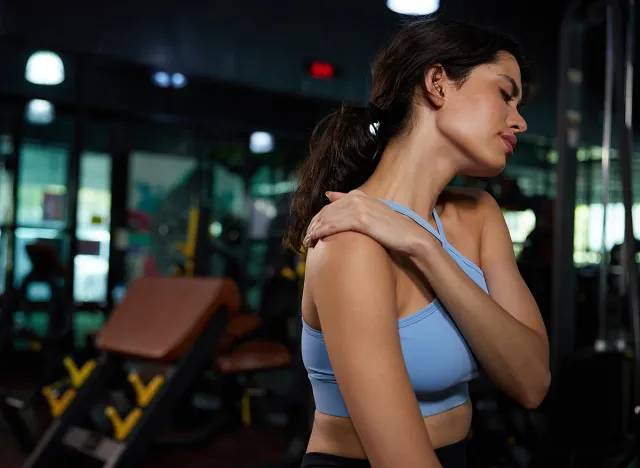
Are you always sore? Maybe you aren't getting enough protein, per Erin. McMahon confirms that protein helps you "recover" from your workouts.
Anemia
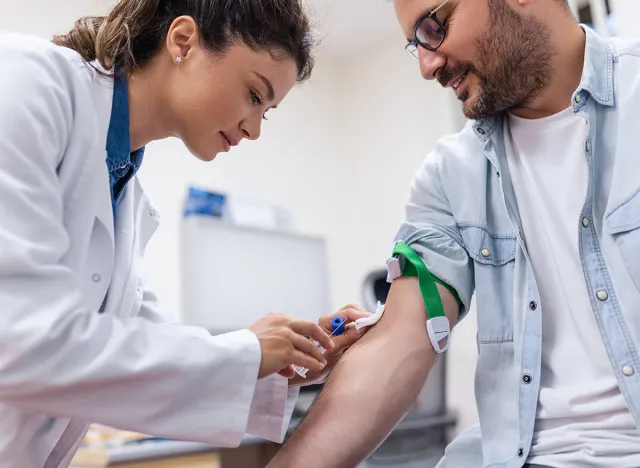
Are you anemic? It could be because of your diet. "Anemia is a condition that develops when your blood produces a lower-than-normal amount of healthy red blood cells," explains the NIH. One of the ways you can become anemic is through an iron deficiency, and protein can help with that.
Brittle Nails
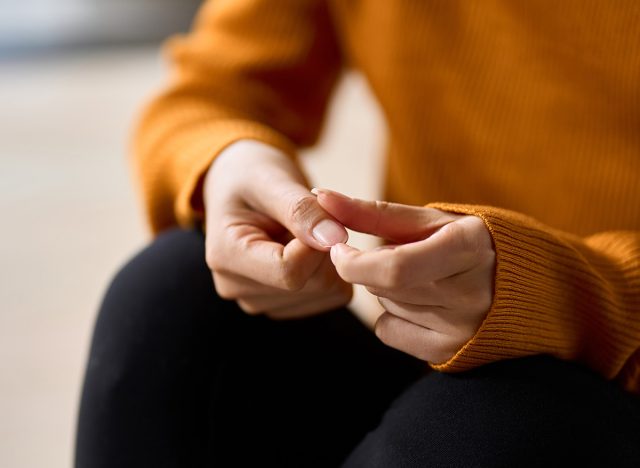
Do your nails keep breaking? Erin mentions that it may be due to lack of protein – and UCLA Health agrees. Along with brittle hair, brittle nails are "often the first sign of deficiency," they say.
Related: 7 Weight Loss Myths You Should NEVER Follow, According to Expert
Fluid Retention
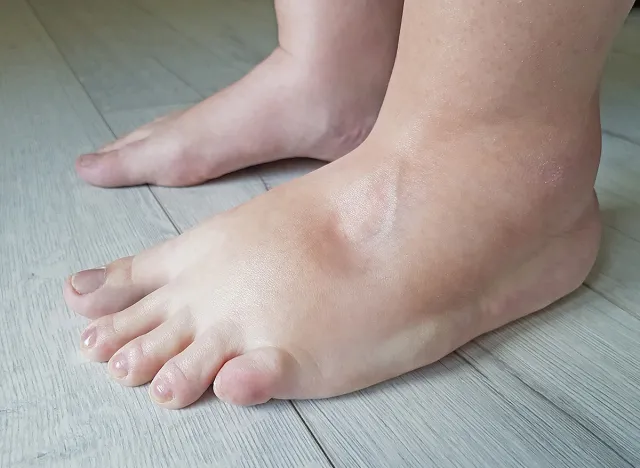
If you aren't getting enough protein, your body might be retaining fluids, according to Erin.
Fatigue

If you feel tired, you might want to amp up protein, says Erin. UCLA Health also notes that trouble thinking "due to fluctuating blood sugar and protein's effect on the brain's neurotransmitters (which regulate mood)" and muscle weakness, "since amino acids are essential for building muscle mass," are signs of protein deficiency.
Getting Sick Often

If you are getting sick a lot, take your protein situation under consideration, says Erin. UCLA Health adds that protein helps boost the immune system.
Related: Autumn Calabrese Shows Off Washboard Abs and Shares Tips On How to Stay "Fit Over 40"
Here's How Much Protein She Recommends
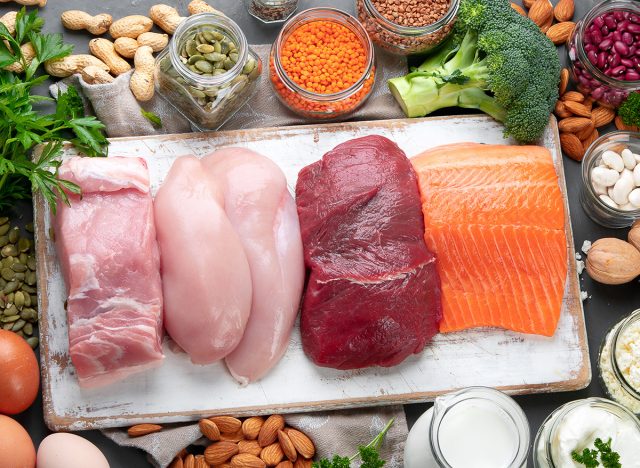
How much protein should you be aiming for? "The easiest goal is go 1 gram of protein per lb bodyweight! So, if you weigh 130lbs go for 130 grams!" says Erin in the caption.
💪🔥Body Booster: If you notice your muscles are dwindling away, it might be because you aren't getting enough protein.





